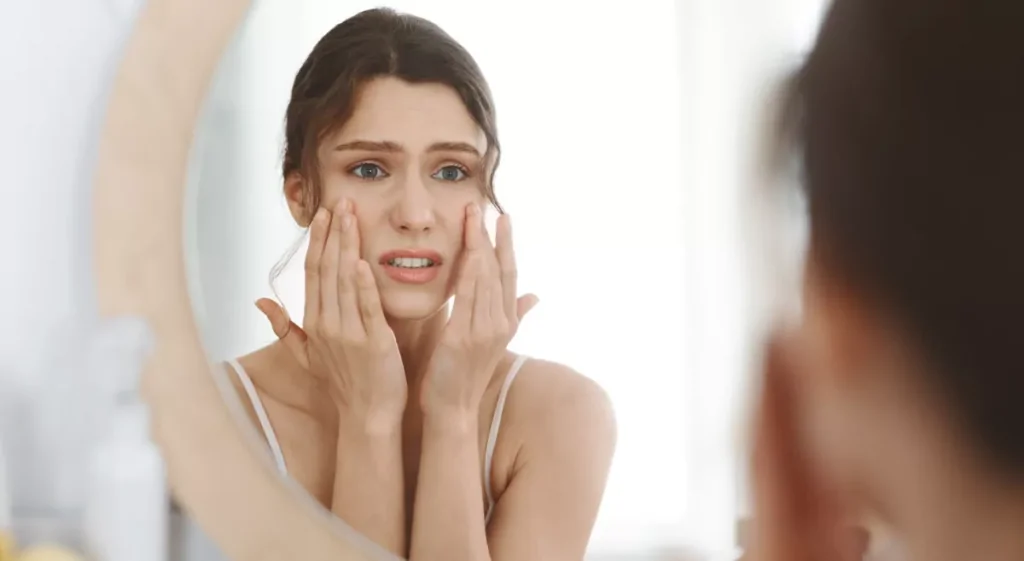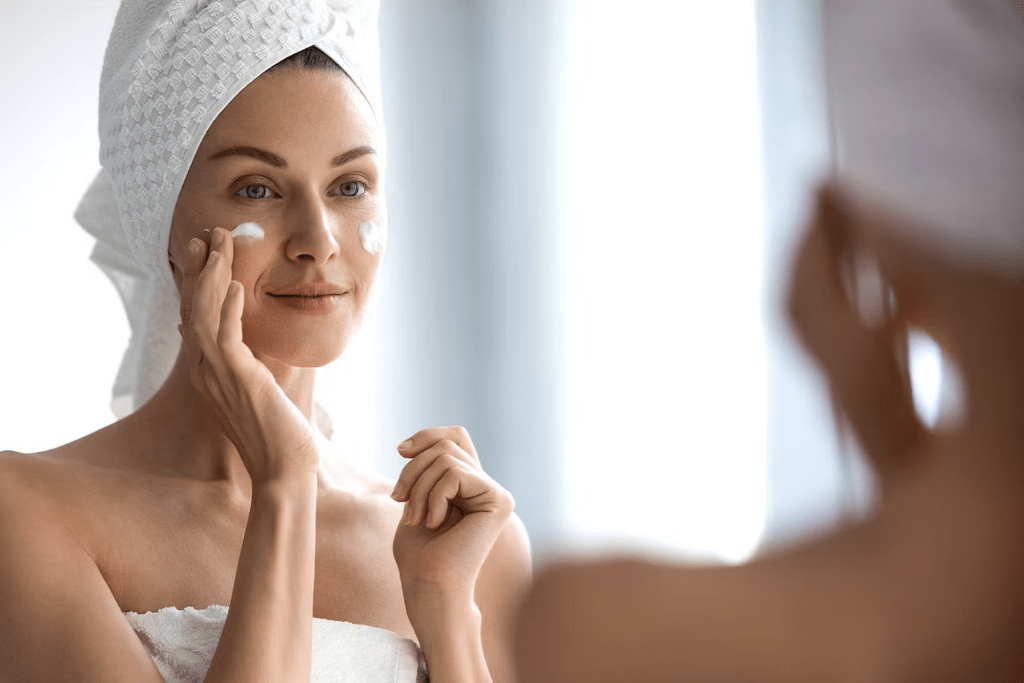Can Stress Damage Your Skin? Discover the Fixes!

We all know that stress can mess with your mood, energy levels, and sleep. But did you know it can also wreak havoc on your skin? Whether you’re dealing with a tough exam, a stressful job, or just the constant buzz of everyday life, stress is silently affecting your complexion. Let’s break down how anxiety impacts your skin and what you can do to combat it.

1. What Happens to Your Skin When You’re Stressed?
When your anxiety levels rise, your body releases cortisol, the “stress hormone.” While cortisol is useful in small amounts, too much of it can lead to a series of skin problems.
- Breakouts: High cortisol levels can trigger overproduction of oil in your skin, leading to clogged pores and acne. anxiety-induced breakouts are often more stubborn and harder to treat than the occasional pimple.
- Dryness & Irritation: anxiety can mess with your skin’s natural barrier, causing it to become dehydrated, irritated, and inflamed. If you’re prone to conditions like eczema or rosacea, stress can make these flare-ups worse.
- Premature Aging: anxiety speeds up the breakdown of collagen (the protein that keeps skin firm and youthful), which can lead to fine lines and wrinkles. The more stressed you are, the more likely your skin will start showing signs of aging prematurely.
- Uneven Skin Tone: anxiety can also affect the blood flow to your skin, leading to a dull, uneven complexion or redness. If you’re dealing with a lot of pressure , you might notice your skin looking tired and lifeless.
2. How Can You Fight Back?
Okay, so stress is a total enemy when it comes to your skin. But don’t panic—there are ways to fight back and reclaim your glow!

A. Manage Your Stress
The most effective way to prevent stress from affecting your skin is by managing it.

- Exercise: Regular physical activity helps reduce cortisol levels and boosts endorphins, which are natural mood boosters. Plus, sweating it out can help clear your skin by flushing out toxins.
- Mindfulness & Meditation: Practices like yoga, deep breathing, or even just taking a few minutes to clear your mind can help reduce stress levels and, by extension, improve your skin’s appearance.
- Sleep: Never underestimate the power of a good night’s rest. Your skin repairs itself while you sleep, so make sure you’re getting at least 7–8 hours of sleep a night to let your skin recover from the anxiety of the day.
B. Follow a Skin-Care Routine That Works for You
When your skin’s acting up, a solid skincare routine is a must. Here are a few steps to keep your skin healthy and anxiety-free:

- Cleanse Gently: Use a gentle cleanser to wash away excess oil, dirt, and makeup. Harsh scrubbing can irritate your skin, so be kind to it.
- Moisturize: Stress can dry out your skin, so don’t skip the moisturizer. Look for one with ingredients like hyaluronic acid or glycerin to keep your skin hydrated.
- Spot Treatments: If breakouts are getting you down, consider using spot treatments that target acne or redness. Look for products with salicylic acid or benzoyl peroxide to help clear up blemishes.
- SPF Protection: anxiety can make your skin more sensitive, so don’t forget sunscreen! UV rays can further damage stressed-out skin, so always apply SPF 30 or higher before heading outdoors.
C. Get the Right Diet
What you put in your body also affects your skin. pressure and anxiety can cause your body to crave unhealthy food, but a balanced diet will give your skin the nutrients it needs to stay clear and hydrated.

- Eat Antioxidants: Foods rich in antioxidants, like berries, spinach, and nuts, can help protect your skin from damage and fight inflammation caused by stress.
- Drink Water: Staying hydrated is key to healthy, glowing skin. Aim for 8 glasses of water a day, and avoid excessive caffeine or alcohol, which can dehydrate your skin.
3. Final Thoughts: You’ve Got This
Stress and skin issues often go hand-in-hand, but with the right strategies, you can reduce the impact of stress on your skin. By managing your stress, sticking to a solid skincare routine, and fueling your body with the right foods, you can keep your skin glowing—even during life’s most stressful moments.
Remember, it’s all about balance! Your skin’s health is connected to your mental well-being, so take care of both. You’ve got the power to look and feel your best, no matter what life throws your way.






